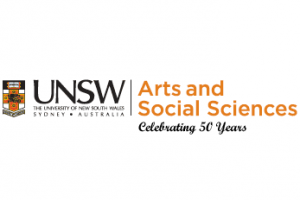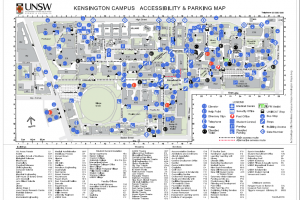
My Expertise
Education, learning disabilities, emotional & behavioural disorders, intellectual disabilities, inclusion, social skills.
Keywords
Fields of Research (FoR)
Special education and disability, Inclusive education, Educational technology and computingSEO tags
Biography
Therese M. Cumming is Professor of Special Education in the School of Education, the Academic Lead Education for the UNSW Disability Innovation Institute, and a Scientia Education Fellow at UNSW Sydney. Her research interests are centred around special education, focused on the following areas: students with emotional and behavioural disorders, social skills training, positive behavioural interventions, the use of technology in the...view more
Therese M. Cumming is Professor of Special Education in the School of Education, the Academic Lead Education for the UNSW Disability Innovation Institute, and a Scientia Education Fellow at UNSW Sydney. Her research interests are centred around special education, focused on the following areas: students with emotional and behavioural disorders, social skills training, positive behavioural interventions, the use of technology in the classroom, Universal Design for Learning in schools and at the tertiary level, and lifespan transitions for people with disabilities. Her research aims to improve the experiences of students with disabilities by working with schools to reduce the research-to-practice gap through the implementation of evidence-based practices in special and inclusive education. Prior to her university teaching and research work, Dr. Cumming has many years' experience as a special educator and behaviour mentor in the United States.
My Grants
Fardell, J., Campbell, L., Shortland, L., Cumming, T., Strnadová, I., Wakefield, C., Marshall, G. (2020). Coordinated health and education support planning. K2A Alliance ($20,000).
Cumming, T., & Strnadova, I. (2019). A Wraparound approach to ‘whole of student’ issues: Education, health, and community services. UNSW Gonski Education Institute ($100,000).
Strnadová, I., Cumming, T., Martin, A., Danker, J., & Loblinzk, J. (2018). Mobile Technology as a Tool to Increase the Social Inclusion of People with Intellectual Disabilities. UNSW Disability Innovation Institute Research Seed Funding 2018 ($30,000).
Cumming, T. (2018). Applied Behavioural Analysis: The socially validity of an evidence-based practice. UNSW School of Education Research Grants Program ($5,000).
Cumming, T. (2016). Evaluating teacher's perceptions of school connectedness for students with emotional and behavioural disorders.UNSW School of Education Research Grants Program ($5,000).
Silvera-Tawil, D., Strnadova, I., & Cumming, T. (2015). Social stories in robot-assisted therapy for children with autism. UNSW Art & Design Faculty Research Grant ($18,920).
Dowse, L., Cumming, T., Strnadová, I., Lee, J. S., Mendes, P., Snow, P., Smith, L., Ellem, K., & Birt, E. (2015). Lost in transition: Supporting young people with complex support needs. Total $392, 000. Linkage Project; Australian Research Council. RG142451, LP150100528.
O’Neill, S., Strnadová, I., & Cumming, T. (2015). How Juvenile Justice and Education support the transition of school-aged youth from within a custodial environment to the community: Lessons to be learned and celebrations to share.Total $60,000: UNSW School of Education Research Grants Program ($20,000), NSW Department of Education ($20,000), and NSW Department of Juvenile Justice ($20,000).
Cumming, T., & Strnadová, I. (2014). Transitions of students with emotional and behavioural disorders: A flexible integration model. UNSW School of Education Research Grants Program ($5,000).
Strnadová, I. & Cumming, T. (2013). Transitions of students with developmental disabilities: Fostering school-home partnerships. UNSW School of Education Research Grants Program ($3,700).
Cumming, T., & Strnadová, I. (2013). Positive behaviour supports: Using MERP to reorganise client activities. ACES ($10,000).
Dowse, L., Lee, J. S., Strnadová, I., & Cumming, T. (2013). Young people with disabilities in the criminal justice system: Exploring patterns of involvement and frameworks of intervention. Faculty of Arts and Social Sciences Faculty Research Grant($10,000)
Cumming, T. & Strnadová, I. (2012) Survey of Positive Behavioural Supports and Wraparound Services Supporting Students with Intellectual Disabilities. UNSW School of Education Research Grants Program ($5,000).
Strnadová, I., Cumming, T., Knox, M., Parmenter, T. (2011). Investigating the Coping Skills of Ageing Women with Intellectual Disabilities: Developing a Strategy- BasedFramework for Promoting Healthy Ageing. University of New South Wales Goldstar Award ($30,000).
Strnadová, I. & Cumming, T. (2011). Women with intellectual disabilities becoming active researchers: Using iPads to facilitate research training. School of Education Research Grants Program. ($5,000).
Cumming, T. (2010). Needs assessment of Sydney Catholic behaviour schools Faculty of Arts and Social Sciences Research Promotion Grant ($1450).
Cumming, T. (2009). Effects of technology-enhanced social skills instruction on a middle school student with an emotional disorder. Faculty of Arts and Social Sciences 2009 Research Promotion Grant ($1335).
Cumming, T. (2008). New South Wales Special Education Teachers’ Perceptions of Classroom Social Skills That Link To Success. Faculty of Arts and Social Sciences 2008 Early Career Researcher’s Grant ($5,500).
My Qualifications
B.S.Ed. Bloomsburg U., M.Ed. UNLV, Ph.D. UNLV
My Awards
2017 UNSW Scientia Education Academy Fellowship
2017 Australian College of Educators Inner Sydney Region Ralph Rawlinson Award for Education of Students with Disadvantage
2015 Vice Chancellor's Award for Teaching Excellence
2013 Faculty of Arts and Social Sciences Dean’s Learning and Teaching Award for Teaching Excellence
2010 Faculty of Arts and Social Sciences Dean’s Commendation for Teaching Excellence
My Research Activities
My research program in special education has three domains: mobile technology as assistive technology, students with complex needs, and transitions and disability. My research program contributes to theoretical understanding, and influences both educational practice and policy in order to improve the lives of students with disabilities, particularly those with complex needs.My work has made a large contribution to the excellent "well above world standard" UNSW ERA ranking for FoR code 1303: Specialist Studies in Education.
Previous and current research projects include:
- A Wraparound approach to ‘whole of student’ issues: Education, health, and community services. (2019, with Strnadová, I.).
- Mobile Technology as a Tool to Increase Social Inclusion of People with Intellectual Disabilities (2019, with Strnadová, I., Martin, A., Danker, J., & Loblinzk, J.).
- Applied Behavioural Analysis: The social validity of an evidence-based practice. (2018, with Strnadová, I., O’Neill, S., & Danker, J.)
- Lost in transition: Supporting young people with complex support needs. (2016, with Dowse, L., Strnadová, Lee, Mendes, Snow, Smith, Ellem, & Birt
- Evaluating teacher's perceptions of school connectedness for students with emotional and behavioural disorders. (2016, with Robbie Marsh)
- How Juvenile Justice and Education support the transition of school-aged youth from within a custodial environment to the community: Lessons to be learned and celebrations to share. (2015-16, with S. O'Neill and I. Strnadová)
- Transitions of students with emotional and behavioural disorders: A flexible integration model (2014, with I. Strnadova)
- Transitions of students with developmental disabilities: Fostering school-home partnerships (2014, with I. Strnadova, UNSW, C. Draper Rodriguez, CSUMB)
- Young People with Disabilities in the Criminal Justice System: Exploring Patterns of Involvement and Frameworks of Intervention (with L. Dowse, J.S. Lee, and I. Strnadová)
- Positive Behaviour Supports: Using MERP to Reorganise Client Activities (with I. Strnadová, contracted by ACES, Port Macquarie)
- Investigating the Coping Skills of Ageing Women with Intellectual Disabilities: Developing a Strategy-Based Framework for Promoting Healthy Ageing (with I. Strnadová, M. Knox, and T. Parmenter)
- Using iPads to Increase the Language Skills of English Learners with Autism (with C. Draper Rodriguez, CSUMB)
- iPad Action Research in a Special Education Setting: Access, Learning, and Engagement (with I. Strnadová)
- Women with Intellectual Disabilities Becoming Active Researchers: Using iPads to Facilitate Research Training (with I. Strnadová and M. Knox)
- Using Technology to Enhance Social Skills Instruction for Adolescents with Emotional and Behavioural Disabilities, and NSW Special Education Teachers' Perspectives on Student Misbehaviour
My Research Supervision
Supervision keywords
Areas of supervision
Through research, teaching, and the supervision of research students, it is my aim to raise awareness and influence both educational practice and policy in order to improve the lives of students with disabilities, particularly those with complex needs. I am happy to supervise students in the areas of special education, emotional and behavioural disability, school connectedness, transitions of students with disabilities, mobile technology as assistive technology, and wraparound support services for students with special needs.
Currently supervising
Sarah Fleming, Doctor of Education (2021-). SELebrating Me: Exploring the potential of a strengths based bibliotherapy intervention to foster social and emotional competencies of gifted students with ADHD.
Jennifer Parrett, Doctor of Education (2019-). Considering curriculum in rural contexts: Big Picture Education Australia in rural NSW schools.
Nicole Trinca, Doctor of Education (2019-). Enablers and barriers of transition to primary school for children with disabilities: Perspectives of parents, early childhood teachers, and primary school teachers.
Jennifer Croker, Doctor of Education (2019-). Executive Function in students with Attention Deficit Hyperactivity Disorder: Trialling a trauma-based approach to improve outcomes.
Astrid Lepelaar, Doctor of Education (2019-). Factors that influence teacher practice in inclusive settings.
Helen Bryce, Doctor of Education (2019-). Parents from refugee backgrounds’ involvement in and perceptions of special education provision in New South Wales public high schools
Nirosha Boaden, Professional Doctorate (2019-). Exploring fetal alcohol spectrum disorders in New South Wales: Multidisciplinary perspectives in rural and remote schools
Murni Siantu, Doctor of Philosophy (2020-). The use of technology to promote culturally responsive partnerships between indigenous families and school.
Bodi Badiuzzaman, Doctor of Philosophy (2020-). The Impact of the digital divide on families of students with disabilities involved in technology integrated family-school partnerships.
Jodie Hoenig, Doctor of Education (2021-). Exploring the factors that influence children and young people’s school connectedness in New South Wales primary schools: A qualitative case study.
Jodi Lawton, Doctor of Education (2021-). The impact of emergency remote learning (ERL) on interdisciplinary urban design studio pedagogy.
My Engagement
Australian Teacher Education Association
Council for Exceptional Children
Council for Children with Behaviour Disorders
Council for Learning Disabilities
UNSW Women in Research Network
Editorial committee member for Australasian Journal of Special and Inclusive Education
Consulting editor for Journal of Special Education Technology (editorial review board).
Reviewer for the Australian Journal of Educational Technology
Guest Reviewer for Teaching and Teacher Education
Associate editor for Intervention in School and Clinic (Behaviour column)
My Teaching
EDST5133 Creating Engaging Learning Environments
EDST5106 Behaviour Management of Exceptional Students
EDST5458 Research in Special Education

